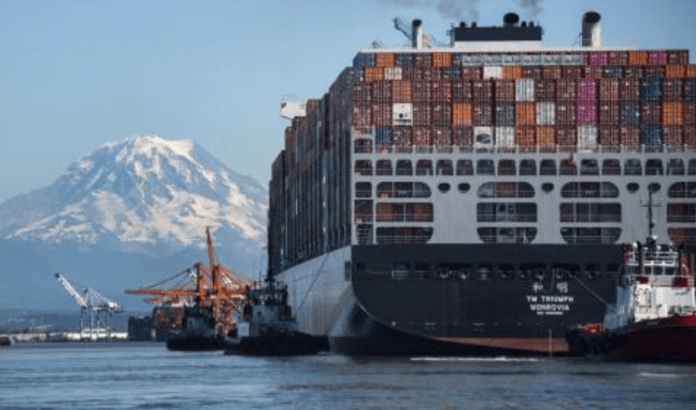The Northwest Seaport Alliance (NWSA) has adopted its plan to implement the Northwest Ports Clean Air Strategy, following those recently adopted by the Ports of Seattle and Tacoma, enabling each port to focus on actions that help achieve their collective zero-emission vision.
The Northwest Ports Clean Air Strategy entails direct changes in equipment, fuels, and infrastructure to six sectors of port activity, including oceangoing vessels, cargo-handling equipment, trucks, harbour vessels, rail, and port administration and tenant facilities, according to a statement.
On 7 December, the Managing Members of the NWSA adopted their 2021-2025 Implementation Plan which includes reducing emissions from existing vessels, vehicles, and equipment by scrapping more than 50 high-polluting trucks through the Scrap and Replace Program, as well as adding zero-emission cargo handling equipment to operations, and deploying a hybrid or zero-emission tug within the gateway.
This measure is in addition to the 450 trucks that have already been scrapped using grant funding from the Environmental Protection Agency (EPA), Washington Department of Ecology, City of Seattle, Puget Sound Clean Air Agency, and the Department of Transportation, according to a statement.
Furthermore, the plan involves accelerating the transition to zero-emission fuels and technologies through the development of fueling and charging infrastructure, with the installation of shore power on international container terminals, one of which is already equipped with shore power.
Earlier on 16 November, the Port of Seattle adopted the Charting the Course to Zero: Port of Seattle’s Maritime Climate and Air Action Plan, identifying strategies through 2030 to halve greenhouse gas emissions, including commitments to complete the Seattle Waterfront Clean Energy Strategy.
In addition, the Port of Tacoma adopted its Clean Air Strategy Implementation Plan on 17 November, which includes developing and implementing a policy to incorporate sustainable building practices in new port-owned buildings and major remodel projects, as well as installing electric vehicle charging stations at five Port locations.
NWSA noted that the Clean Air Strategy and port-specific implementation plans were developed with engagement across industry, government, non-profits, and near-port communities to advance an international engagement strategy for reducing vessel emissions.







